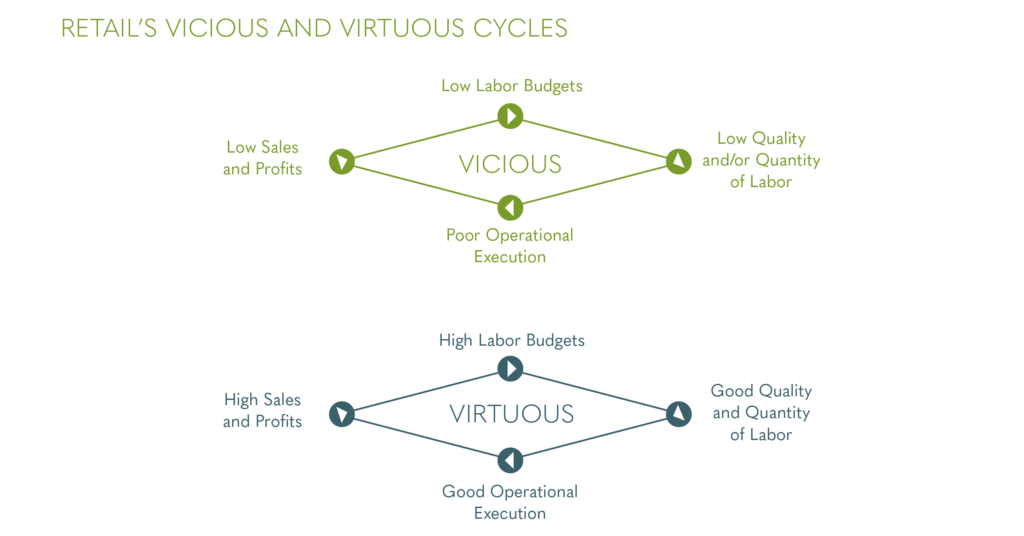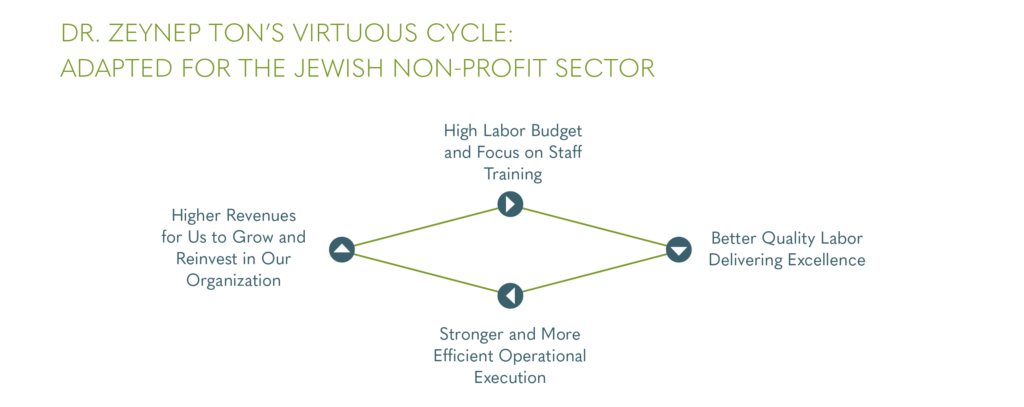
Create and sustain cultures that are efficient, transparent, and fair, and value potential and performance generously. This will strengthen employee satisfaction, raise productivity and revenue, lower turnover, and enlarge your pie.
BS, however unhelpful or unpleasant, is inevitable because many of us simply aren’t alarmed by it. BS is also necessary. Like our bodies, when our organizations and communal systems use nutrients like people, building, systems, or materials to produce our products and services, we also produce waste. These are the inefficiencies of working with people and systems. Since BS literally and metaphorically smells, it distracts from the work we want to do. When BS makes a mess, we have to clean it up, which can often feel like an additional waste of time, energy, and resources.
The best organizations, however, find ways to reduce or eliminate waste, which leads many of our Jewish community professionals, to feel the most valued and blessed. Jewish community professionals are most attracted to working for the organizations that prioritize cutting the BS.
How We Cut the BS:
BS is often the result of a vicious cycle of management. Dr. Zeynep Ton of MIT and her work on the Good Jobs Strategy and the Good Jobs Institute suggests another way. In her research on retail organizations, she has discovered that companies who have high labor budgets – specifically higher compensation and training budgets – and who have a focus on operational excellence and efficiency – turn out to be more profitable then their vicious cycle counterparts.

We can then translate Ton’s work to the Jewish non-profits sector. Cutting the BS is about removing the old scarcity model culture. If we pay and invest in our staff more, we don’t necessarily have less resources to devote elsewhere. Investing more in the PIE can ENLARGE the PIE. This is called the abundance model – and practicing the abundance model, which includes stronger and more transparent compensation practices, more staff training, and better operational excellence and efficiency – can reduce BS – strengthening the motivations and feeling of value among our staff, as noted in the cycle below:

Plan of Action:
- Invest more funds in good jobs and operational excellence – ending a “culture of mediocrity” in which we reward mediocre performance.
- Switch from a scarcity to an abundance mindset – invest more in staff in order to enlarge the pie of resources and opportunities.
- Highlight and amplify what make Jewish organizations effective, efficient, and overall great, including sharing the why of our work
- Start being real with compensation – setting transparent salary levels and bands following the 2020 Leading Edge Salary Transparency Guide, and negotiating openly and honestly with all staff, linking compensation to meaningful performance reviews
- Reduce wasted time, including meaningless meetings, and instead gather staff for community of practice gatherings with a clear agenda, purpose, and structure – following the guidelines of a case consultancy model and from MEETEOR and Mamie Kanfer Stewart.
Our Portrait: Graham Hoffman

Graham is the CEO of the Jewish Federation of Southern Arizona and of the Jewish Community Foundation of Southern Arizona. Graham attended pluralistic institutions, including his community Jewish day school, Jewish summer camp and BBYO, which shaped his knowledge of and engagement with Jewish life. Despite these generally joyful experiences, Graham had no inclination to become a Jewish professional in part because he was, and still is today, critical of Jewish organizations who are “stuck in a fixed pie mentality” as Graham put it, reflective of the scarcity mindset introduced in the last blessing.
After successful tenures with AIPAC and Hillel International and now leading the Jewish community in Tucson, Graham thrives when the mission is clear, the operational process is working for the staff and not against them, and the job-content fits with the interests and passions of the candidate. This has the makings of a perfect job situation for Jewish community professionals today, and would make them feel truly blessed. By cutting the BS, Graham thrives.
Questions for Reflection:
- Is your organization smart with its resources? How might we review our process to ensure we are following an abundance model – investing in staff and operational excellence – there then a scarcity model?
- How might we involve all staff in this process , posing to the full team: “How can we be more operationally excellent?” Perhaps staff can propose solutions and let them own the task of designing and implementing them.
- How might we re-envision our meetings? To esnure they are productive and not wasteful? What might we learn from the case consultancy model?
